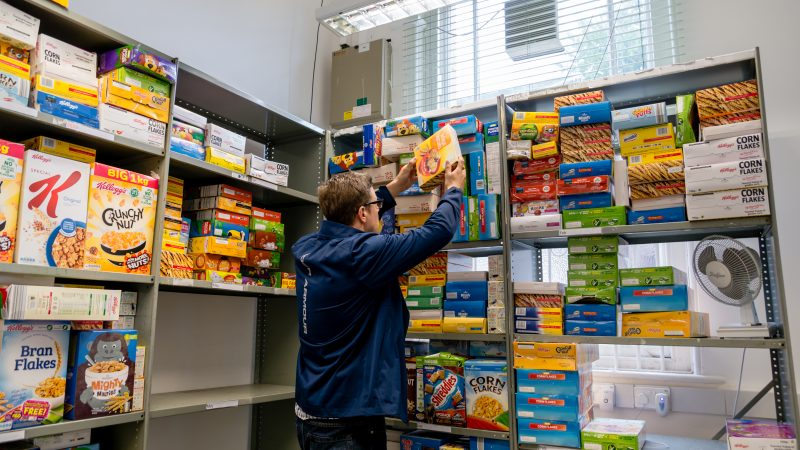
A political party that is in such political disarray and so desperate to stay in power as the Conservatives currently are, will grasp at any political straw and sink to any squalid political depth.
So, I expect this week’s Autumn Statement to be a combination of red meat on taxation to be thrown at the Tory right and an attempt to whip up a crude scapegoating attack on the sick and disabled. We’ve seen it all before.
Straining credulity
The Chancellor will start by straining the credulity of virtually all serious economic and political commentators with the argument that first, the government has an economic plan and second that it’s working.
The reality is that with the government bereft of any strategy, it is the Bank of England that is calling the shots when it comes to economic policy.
Bank of England in control
No matter what the Chancellor claims, it is the Bank of England’s determination to use interest rate rises to control inflation that is driving the economy.
The Bank has consistently refused to accept the evidence that the major drivers of inflation have been the impacts of the war in Ukraine, the breakdown of supply chains post Covid and greedflation profiteering by corporations and landlords.
As a consequence, it has taken the standard route of tackling inflation by raising interest rates to increase unemployment and take the economy to the edge of recession in order to reduce demand in the economy. And it has succeeded.
Unemployment is rising
Historically young people are often the hardest hit by unemployment rises and that is what has happened again. Youth unemployment, with the age range 16 to 24, has risen by 61,000 in the last quarter and has gone up by 154,000 over the last year.
There are 1.6 million classified as economically inactive but who want work with 320,000 temporary workers seeking permanent work and 800,000 part time workers looking for fulltime work.
On the wider unemployment measure there are 4.3 million people looking for work or more work but the number of vacancies has fallen for 15 consecutive months from 1.3million to 989,000.
Edge of recession
The Bank has also certainly succeeded in setting the economy off on the path of recession. In the last three months the UK economy has stagnated. There was no growth with GDP at 0% change.
The Institute for Fiscal Studies is predicting in its Green Budget Report that the economy will shrink over the next three quarters. It judges that the UK economy is in the early stages of a significant rates driven shock, with one risk being of a further wave of insolvencies.
Inflation continues to hurt
Headline inflation has fallen largely as result of external factors with falling energy prices but food inflation is still above 10%, hitting the poorest families hardest, who spend a higher percentage of their incomes on food.
Over the last two years the overall price level has risen by 16%, food bills have risen by 28%, and energy costs have risen by 49% whilst average earnings have risen by only 14%.
Poverty no surprise
So, it is no surprise that so many of our people are living in poverty. There are 14 million people in poverty in the UK, including over four million children. 70% of the children in poverty are in a household where someone is in work.
The authoritative Joseph Rowntree Foundation has identified that more than one million children have experienced what it describes as destitution over the last year.
Destitution is defined as when someone is unable to afford to meet their basic physical needs to stay warm, dry, clean and fed.
Tackling the poverty crisis
In any rational and truly civilised country the autumn statement would be focussed on cutting poverty not taxes and supporting those who are sick and disabled and unable to work not scapegoating them.
There is a ready limited programme of simple measures that could make a start in lifting millions out of poverty.
A basic emergency anti-poverty programme would include :
- Restoring the £20 a week that the Conservatives cut from universal credit. This would cost £6bn.
- Scrapping the two child limit, which would lift 250,00 children out of poverty at a cost of £1.3bn.
- Restoring the local housing allowance to cover the 50th percentile of the local housing market, as it was under Labour, at a cost of around £2 billion.
According to the most recent economic forecasts, it is estimated that the Chancellor will have £20bn of headroom when he stands up to announce the autumn statement.
There are therefore sufficient resources to pay for this limited emergency programme and no reason not to implement it immediately.
This could be the best Christmas present many families and children across the country could receive this year.
Clinging on
I suspect that the Tories will cling on in a forlorn hope that they can turn their political fortunes round over the next 12 months. This will mean that Labour’s inheritance of a community steeped in poverty and hardship will be so much worse.
It also means that the emergency poverty programme will be needed urgently in Labour’s first budget. It should be a core element of the party’s manifesto to give people hope.




More from LabourList
Almost half of Labour members oppose plans to restrict jury trials, poll finds
‘How Labour can finally fix Britain’s 5G problem’
‘The University of the Air – celebrating 60 years of Harold Wilson and Jennie Lee’s vision’